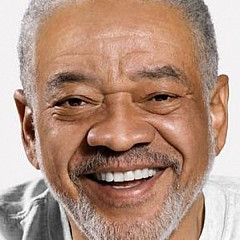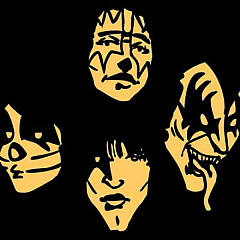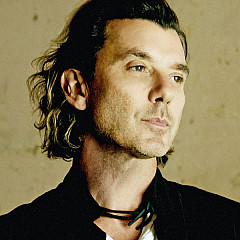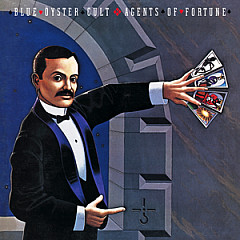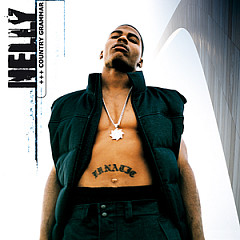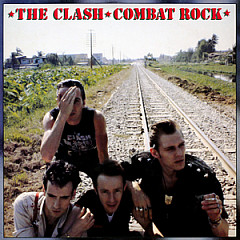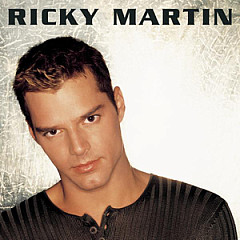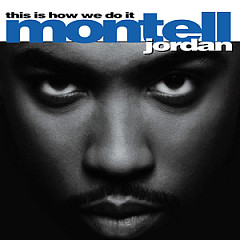Much has been written about Van Halen, but these guys have unique insights that will make you listen to their music in a whole new way. In this interview with Tolinski, he talks about his eureka moment when he figured out (after a discussion with Steve Vai), how Eddie played off David Lee Roth, and what he did differently with Sammy Hagar. Brad also talks about what unreleased EVH material is in the vaults, and breaks down some hidden gems in his catalog.
 Greg Prato (Songfacts): When did you first meet Eddie and how many times did you interview him over the years?
Greg Prato (Songfacts): When did you first meet Eddie and how many times did you interview him over the years?Brad Tolinski: I first met Ed probably in the late 1980s or the early 1990s at a NAMM show. I was just starting as the editor-in-chief of Guitar World, and we needed an interview with Ed done about his new guitar – I think it was the Music Man guitar at that time. And as the editor-in-chief, I was able to assign myself to the story! [Laughs] Good excuse to chat with Ed. After that, we probably spoke – on record or off record – at least a couple of times every year for the next 25 years. I talked with Ed pretty regularly.
My co-author, Chris Gill, also spoke with Ed quite a bit. Towards the end of my reign at Guitar World, I was overseeing something like four or five different magazines and I was writing less. And when it came to Ed, I tended to assign Chris because he was so knowledgeable about Ed's music and his sound. They got along really well, as well. So, that's why I also brought him in on the book.
Songfacts: For many years, I – and I'm sure many fellow Van Halen fans – was under the impression that Eddie had the perfect life. He was in one of the world's most successful rock bands, had money, a beautiful wife, a child, and universal praise for his guitar playing. But as readers will find out in the book, he was a troubled person... or perhaps a "tortured artist."
Tolinski: I would say this: He was a complex person. The image that most people have of Ed is sort of like this all-American guy with this beautiful smile and living a charmed life. But what I really wanted to present in the book was this full picture of him. And there's just this incredible arc to his story.
A lot of his personality was determined by emigrating from Holland to America at an early age. As an immigrant, he couldn't really speak English, so the first few years of his life here were incredibly difficult because he was just tossed into school, couldn't really speak English, got picked on a lot. And that gave him a certain amount of social anxiety that I think stayed with him his entire life.
On the positive side, that made him retreat into this world of music. He couldn't really communicate well using the English language, but he still had the desire to communicate, and he did that through music. And I think that is where his dedication, intensity, and all of his focus came from, first with his piano playing, then on his guitar playing.
Songfacts: I recently interviewed Wolfgang Van Halen for Songfacts, and I told him that while most people seem to focus on Eddie's solos and tapping techniques as his major contribution to rock guitar, I thought he was an incredibly underrated rhythm guitarist. Wolfgang agreed and also added "songwriting" to my observation.
Tolinski: Oh yeah. He was an astounding rhythm player. And it's really fun to listen to. There are a lot of tracks you can get online where the guitar parts are isolated. And it's funny because I was just listening to an isolated version of "Mean Street", and you hear how funky and syncopated his rhythm guitar playing is throughout that song, which really drives it.
I think he was taking his rhythm to new heights later on in his career. I encourage people to listen to the three tracks he did with Sammy Hagar on The Best Of Both Worlds greatest hits record. The rhythm playing on all three of those songs ["It's About Time," "Up For Breakfast," and "Learning To See"] is astounding.
And what's really interesting about it – and it may be why those songs were never big hits or popular – is how the rhythm guitar part is constantly evolving throughout these songs. It's not repetitive in any way – it keeps on creating variations on itself. It's fascinating just to listen to the rhythm playing on those tracks, and on Van Halen III. He really evolved as a rhythm player.
I would argue that if you think he was one of the five greatest lead players of all time, he's certainly right up there as one of the top five rhythm guitar players, too.
Songfacts: There has been speculation about what is included in Eddie's vast tape archive.
Tolinski: There's a lot of stuff. What's interesting is he really only recorded two studio albums in the last 20 years of his life, but he was always recording – he never stopped. He was always experimenting and doing things.
I went to 5150 [Eddie's studio] quite a bit, and there were literally shelves of CDs that had been recorded with stuff, cassette tapes, and all sorts of ideas. I heard a few things – not a lot – and I talked to a number of other people.
There's a conversation with Steve Vai in the book, where Eddie had Steve over to the studio and was playing him some stuff that he had been messing around with in the studio, and Steve was saying it was astounding, and, "Hey, why don't you do that solo record? Why don't you do just a great guitar thing?" And Ed always demurred from that. He was like, "Nah. I'm in a band. That's how I'm going to express myself."
But there's a lot of stuff. And who knows when or if we're going to hear any of it.
 Eddie Van Halen at 5150 Studios in 1991. Photo by Larry DiMarzio.
Eddie Van Halen at 5150 Studios in 1991. Photo by Larry DiMarzio.Tolinski: I think they had all sorts of music done with all sorts of different people. I know that they had Chris Cornell up there at one point singing. I don't think it's of a finished record like people are suggesting. But there is a whole other good dozen songs with Gary Cherone that nobody's ever heard. I've heard some of that stuff and what I heard was terrific. So, Lord knows.
I was making a joke – at a couple of different points, I would be talking to Ed and I'd be looking over at the shelf of stacks and stacks of stuff, and I was thinking to myself, "What would happen if I just ran over and grabbed a handful?" [Laughs] But I don't know what's on that. But I know there's a lot of music.
Songfacts: Are you surprised Eddie never released an all-instrumental album à la Jeff Beck or Joe Satriani?
Tolinski: He just wasn't interested. I definitely brought that up with him a couple of times, but he saw himself as being part of a rock band. And it's funny – for as great as a soloist and a player as Ed was, I think he saw himself just as much as a songwriter and felt better when he was with a singer. I don't think that there is any great mystery about it.
For that matter, Pete Townshend – although not a soloist like Ed – you could imagine him putting together some terrific guitar instrumentals, but he just never really saw it that way. Probably a lot of guitar players are like that.
Songfacts: Let's settle this debate once and for all: Dave or Sammy?
Tolinski: To me, it's really two different bands. I've been spending quite a while working on the book, but after I've been talking to people, new ideas keep on coming to me. I guess that's the sign of great music – when it suggests new things to you, even 20 or 30 years later. But one thing I really loved about Van Halen – this is true especially in the David Lee Roth years – was how loose-limbed and funky they were.
One of my favorite songs, for example, is "Somebody Get Me A Doctor." That sounds like it's going to come off the rails at any minute. It slows down, it speeds up, it stops, it does all these different things. And it's really like a great blues/jazz band, or early rock band.
You have to think about what music was like in 1976/1977 – you had all these bands like Boston, Journey, or even the Eagles, and the whole goal was to get tighter and tighter, right? And Van Halen had this innate understanding – not just Ed, but the whole band – that music should breathe and feel alive. And I think that during the David Lee Roth era, that's what you got. You got these spontaneous things happening and these great syncopations. And the band just really clicking with each other. You can really feel that, because Ted Templeman's production was basically capturing the band in a live situation. And you lose that a bit with Sammy. Music had changed and Van Halen changed with it. They became a little more polished, more slick – lost that sort of dangerous edge to their music.
And David Lee Roth is a highly, highly underrated lyricist, I think like Mick Jagger. People will talk about Lennon/McCartney and Bob Dylan, but it's hard to write a great rock lyric that doesn't sound cliché and sounds fresh, that's interesting and exciting. And I think Dave was a superior lyricist and actually doesn't get enough credit.
Songfacts: Lastly, let's discuss some of your favorite Van Halen tracks from a guitar perspective.
Tolinski: I knew you were going to ask about this, so I tried to pick a couple of things that I enjoyed and maybe a couple of things that people really hadn't thought about. And when you're talking Edward Van Halen's moments or solos on the guitar, you have to obviously start with "Eruption" because it reinvented the way we were thinking of and listening to the guitar in less than two minutes. That song changed the way electric guitarists looked at the instrument – it completely revolutionized it for the next decade.
A lot of people have been asking me what my favorite Van Halen song is, and one that I think is highly underrated is "Beautiful Girls," especially the guitar part.
 Eddie Van Halen on the Balance Tour, San Jose Arena, 1995. Photo by Chris Gill
Eddie Van Halen on the Balance Tour, San Jose Arena, 1995. Photo by Chris GillBut then it really clicked. I was listening to "Beautiful Girls," and what hit me was that these wild assortment of bends and growls and zany guitar sounds, they functioned almost as commentary on David Lee Roth's outrageously, hypersexual, Bugs Bunny persona. It was almost like Looney Tunes. Like Carl Stalling, who wrote the music for Looney Tunes.
So, what you have, since Ed is such a sensitive musician, he's responding to this outrageous persona of David Lee Roth and just creating sounds that would somehow go along with that. I think that "Beautiful Girls" is such a perfect example of David Lee Roth being funny and off the wall, and Eddie having to figure out something on the guitar to respond.
If you listen to that guitar part isolated, it will make you laugh. The sounds are so outrageous and whacky. That is really unlike anybody else. You can place Jeff Beck or Eric Clapton or Jimi Hendrix with certain kinds of tradition and see where the roots of that music is. With Ed, there's almost no precedent – he's almost functioning in his own universe. And I think that universe was partly created by his response to David Lee Roth's persona.
I also think "Beat It." People take it for granted: "Oh, it's Eddie Van Halen playing on this Michael Jackson song. One of the most celebrated songs in music history." And then they sort of let it go. But if you really listen to that solo, it's a tidal wave of notes. It's worthy of John Coltrane! It's like John Coltrane meets Chuck Berry. It's really unlike anything I've ever heard in a pop music song, let alone one of the biggest pop music songs of all time. It's sort of taken for granted, but it is amazing, especially when put in that context.
Also, what I think are a couple of gems that people might not be aware of and are certainly worth listening to again, there's a song called "Learning To See," which is one of the new Sammy Hagar songs on the Best Of Both Worlds greatest hits. And it is really one of Ed's most wild and psychedelic solos.
The song itself is not a great song – it's a little dreary. But if you listen to the guitar break in it, it's very different from Ed. I don't think he really did anything like it before or after. It is so wild and psychedelic, it almost borders on being a Hendrix kind of thing. In some ways, it's even weirder than stuff that Jimi would do. So, I would urge people to go back and revisit that song.
And also, "Ballot Or The Bullet" on Van Halen III. He didn't play slide guitar very much, but there's a fantastic slide guitar solo on that song. It almost makes you feel that Ed could have been playing slide guitar half of the time – it's just so good and so competent. For a guy who didn't play slide guitar that much, it's an amazing piece of work.
And then – we touched on this – he's an underrated songwriter. A guy that could really, really write cool songs and cool riffs and cool hooks. And I just love "Somebody Get Me A Doctor." There are these cool, ripping artificial harmonics, and these volume swells, but it's just such an exciting song. I could listen to that any day, any time – not just the guitar part, but the whole thing.
I think "Poundcake" is a great song. I think "Me Wise Magic" is a good song from the later period. I think there's this misnomer that maybe it's just all about the first few records, but Ed was doing super-solid work throughout his entire career.
November 9, 2021
Eruption: Conversations with Eddie Van Halen is available at Amazon.
Further reading:
How Eddie Van Halen Revolutionized Rock Guitar
Songfacts Podcast: Eric Senich of the Van Halen News Desk
Van Halen In Photos: 1979-1982
Interview with Steve Vai
Interview with Billy Sheehan
More Song Writing




